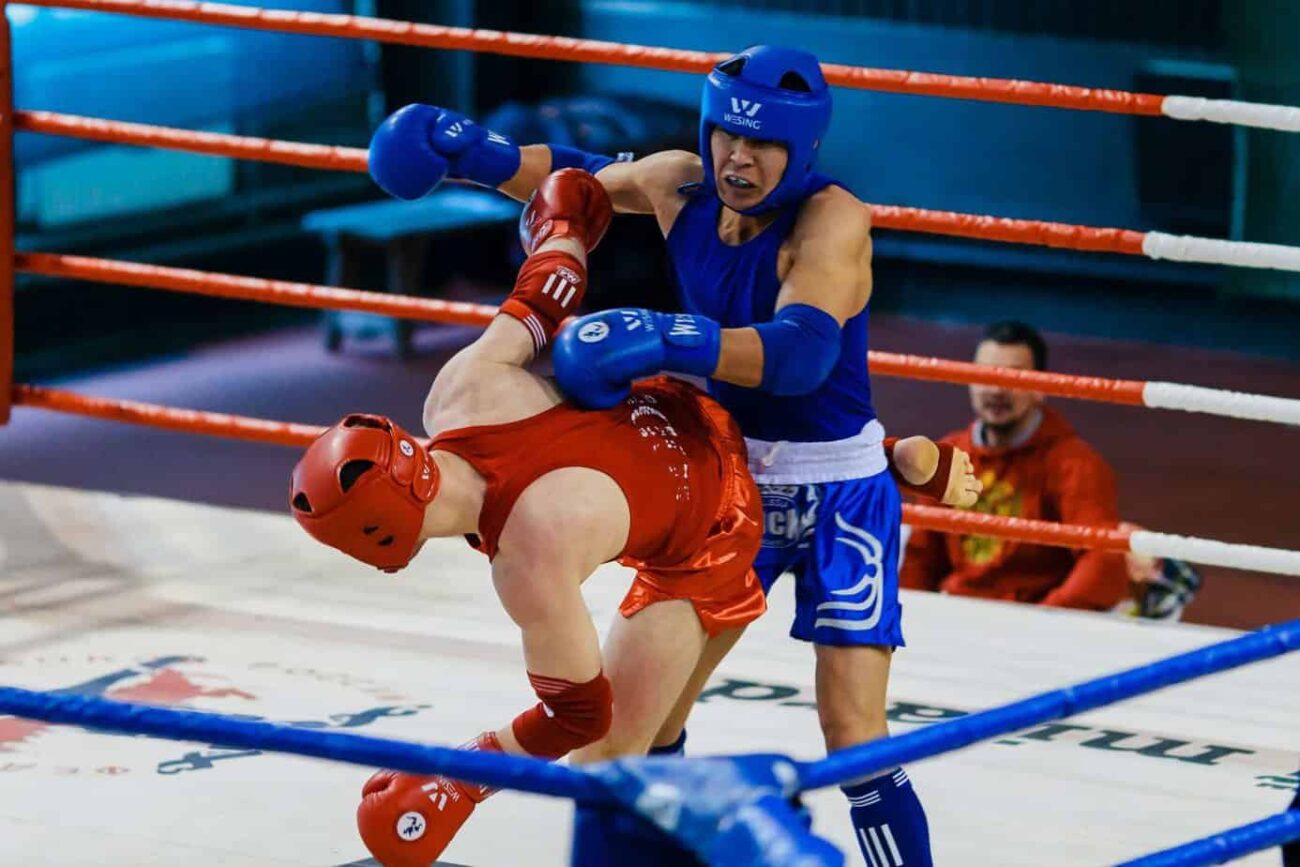Turning professional is a dream for all up and coming young boxers. Records, fame, popularity, money, being the best. All of those comes with being at the top of professional boxing. But the road to glory is not easy at all. There is a long way from the start to the stars. It is often hard for young ones to make a decision to put everything aside, and focus all their time on succeeding in boxing. One of the main reasons is financial insecurity. It is often indoctrinated that amateur boxers can’t make a living, so very few of them make that crucial step to focus fully on boxing and strive to one day become champions. But, how true is that financial instability for amateur boxers?
Altough amateur boxers can’t get paid directly for competing, nor receive any fight and tournament prizes, they can get some sorts of compenzations from endorsements and grants from governments. So, even if amatuer boxers don’t get directly paid, there are still some ways they can earn money.
In the past, there was almost no way an amateur boxer could earn for a living. In fact, doing any sort of sport on “amateur level” meant that they do it for free because they love it and don’t need any sort of financial compensation for doing so. But, through the years, it was obvious that doing a full-time job to secure yourself financially, and simultaneously dedicating yourself to boxing fully, was almost impossible. So, some detours were made for amateur boxers to earn for a living. As already said, sponsors, governments, and etc. come into the equation. Let’s get into the topic more in-depth and see how exactly and how much can an amateur boxer earns.
What is Amateur Boxing?
Before we get into the discussion about amateur boxers’ earnings. Let’s have a quick look at what exactly is amateur boxing and how does it differ from the professional boxing.
Amateur boxing is a type of boxing practiced at the collegiate level, Olympic Games, Pan American Games, Commonwealth Games, etc.
Amateur boxing matches for men consist of three rounds. Each round lasts for three minutes. For women, there is a slightly different concept. There are four rounds, with two minutes each. Between each round, there is a one minute pause.
Speaking about determining a winner, as in pro boxing, an amateur boxing match can end in a KO/TKO/doctor stoppage as well. If the fight goes to the distance, there are five judges that will determine the winner.
The main thing that is considered is the total amount of clean, legal blows delivered. What means legal? Amateur boxers are supposed to wear belts. Any blow above the belt is considered as legal. So, the number of blows is what is considered, not the amount of damage that is inflicted by the punches.
Worth noticing is that number of blows is not counted by the rounds, but for the whole contest. For example. Fighter A scores 20 legal, clean blows for each of the first two rounds, while fighter B scores 10 for each of those. In the third rounds, fighter A scores just 5 blows, and fighter B delivers 30 blows. Although fighter A “won” rounds one and two, and fighter B “won” just the third, the fighter B is the winner because, in total, fighter A delivered 45 blows opposed to 50 from fighter B.
Generally, amateur boxing is considered safer than a professional. Amateur boxers must wear headgear while fighting. Clinching is hardly allowed, and the fights are stopped early if there is a possible injury to occur, or if one fighter is dominating significantly. Because of that safety aspect, amateur fighters often have few fights in a span of just a few days. On the other hand, pro boxers tend to wait for months for the next fight.
Each fighter is supposed to wear athletic shirts, where red is for a higher-ranked fighter while blue color is for a lower-ranked fighter.
Amateur boxing matches are different from lineal championships in professional boxing. There are usually no rankings nor champions, but a series of different games, championships, cups, and tournaments. Olympic Games are the highest form of amateur level boxing and is often the jumping point for amateurs to turn pro.
Difference Between Amateur and Professional Boxing
| Amateur Boxing | Professional Boxing | |
| Headgear | Yes | No |
| Ring size | 16 ft² – 20 ft² | Not specified |
| Number of rounds | Three for males, four for females | From four to twelve |
| Round time | Three minutes for males, two minutes for females | Three minutes |
| Number of judges | Five | Three |
| Round scoring | No; the whole fight is scored in total | Yes; round by round scoring |
| Scoring impact | Number of clean punches | Judge’s opinion (defense, effective aggression, clean and hard punching, ring generalship) |
| Full time job | Usually no | Usually yes |
| Paid for fights | No | Yes |
The biggest difference we want to point out here, and the one that is the subject of this particular article, is the difference in the earnings amateur and professional boxers make. Professional boxers are paid by a sponsoring promotion or organization. On the other hand, amateurs are usually boxing in their “free time” while working their full-time job. Amateur earns some additional money through advertisements, endorsements, government grants, but can’t demand nor get any money from the boxing fight promotions.
How Are Amateur Boxers Getting Paid?
Legally, following the rules 309.2 to 309.5 of the 2008/2009 USA Boxing Rulebook, amateur boxers are not allowed to receive any compensation (purses nor prizes) for competition at amateur level competitions (source).
Furthermore, rule 309.7 of the 2008/2009 USA Boxing Rulebook states that amateur boxers are also not allowed to receive any compensations or endorsements for product promotions (source). Although it is legally prohibited, it is still very ambiguous and can be bypassed, so in general some earnings can be made.
Outside of the USA, there are no such strict rules regarding earnings from endorsements and any other way that is not strictly from fighting purses or prizes.
Actually, there are a lot of countries worldwide (especially in Europe) that fully support their amateur fighters. A lot of government and state authorities like National Boxing Federations or Olympic Committees grant their amateur boxers.
Also, in some countries, amateur fighters are commonly helped by the government by getting a job like Police, Army, Navy, Marines. They often make such deals that amateur boxers are getting paid from their “full time” jobs, but are allowed to focus on boxing all the time.
How Much Do Amateur Boxers Earn?
As we have mentioned above, there is no “direct” pay for amateur boxers. So, there is no real data that can be obtained about how much they earn. Amateur boxers can earn from endorsements, grants from governments and boxing federations, coaching, side jobs, etc. So it is very hard to say how much they earn as it can vary very much.
What we managed to found out, is one example.
In 2010, the International Boxing Association (AIBA) came up with an idea for an amateur boxing team-based tournament featuring five different weight classes. Actually, it was somewhat of a crossing between professional and amateur boxing as boxers were not allowed to wear headgear, there were five three-minute rounds, and a 10-point scoring system was in play. The winners were granted the shot at the 2012 Olympics.
But, what is more important, is that this time, they would get paid. The salaries were ranging from $25,000 and $300,000 per year. A fighter could also have an opportunity to win an extra $5,000 for each win (source).
Amateur boxing is indeed a tough road to tread due to financial instability, yet with sponsorships and potential endorsements, there can be some sense of financial respite. However, as you navigate this challenging path, securing high-quality equipment will aid your journey, specifically your boxing gloves. With that said, I encourage you not to overlook the value of reliable boxing training gloves for women, which are crafted not on the basis of aesthetics, but on comfort, protection, and overall quality.
From Olympic Medal to Pro Debut
Although amateur fighters are getting paid nothing (directly) compared to professional, there are still some opportunities for the. The biggest being the Olympic Games. Winning the Olympics Gold is the sure way to jump right into the mix of best professional fighters and start earning big time.
For example, “regular” amateur fighters that went pro are earning a few thousand bucks at the beginning. On the other hand, it was reported that Sugar Ray Leonard earned $40,044 for his professional debut after winning the gold at the 1976 Olympic Games.
Furthermore, do we even have to mention the likes of Anthony Joshua, Vasyl Lomachenko, and Floyd Mayweather in recent years? After winning the gold at the Olympics, they proceeded to make a career full of money.
So, even if amateur boxers are not getting paid directly, there are possibilities for them to earn, train, and make a transition to the top of the game.

